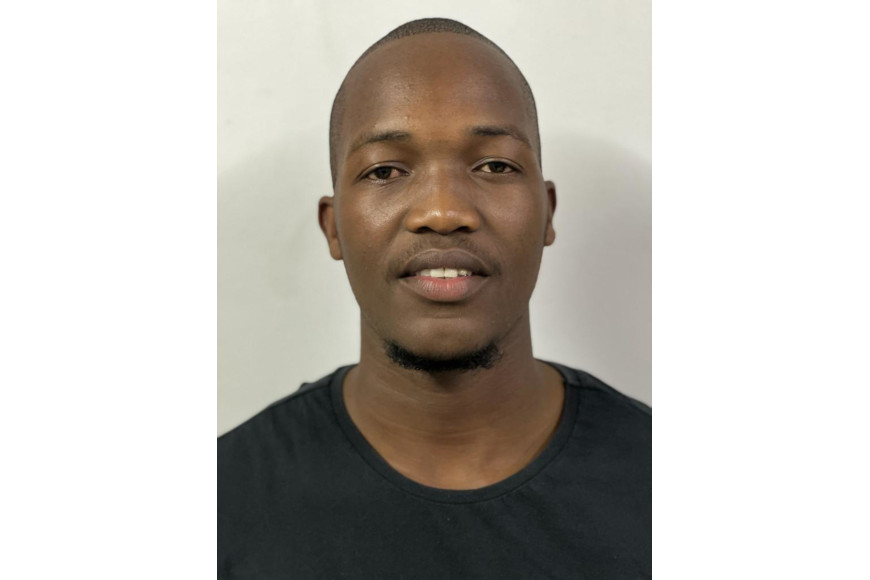Producing innovate and adaptative graduates forms a key aspect for the Durban University of Technology (DUT).
Lindokuhle Ngema, a Master of Engineering (Chemical) student within the Green Engineering research group, at the Durban University of Technology, has made the institution proud. He recently won best oral paper at the 39th Johannesburg International Conference on Chemical, Biological and Environmental Engineering (JCBEE-23). The conference aimed to bring together leading academic scientists, researchers and scholars to exchange and share their experiences and research results about all aspects of Chemical, Agricultural, Biological and Environmental Engineering, and to also discuss the practical challenges encountered and the solutions adopted.
When asked oh how he felt upon his win, Ngema said: “This was my first time winning such an accolade. I was very excited to learn that I did well on my presentation, although this win came as a surprise, it helped me regain confidence in my research,” remarked proudly.
He further said that he got to know of the conference when a call for submission of abstracts was shared by the supervisor (Dr Emmanuel Tetteh) via their various communication platforms. At the GERG, Ngema’s masters research focuses on valorization of different wastewater streams to generate biogas and evaluate its feasibility to power household’s appliances/wastewater treatment system. He has published one journal paper, and one conference paper and currently wrapping up his experimental research.
The topic he presented was on: Optimizing anaerobic digestion of a local South African municipal wastewater using Box-Behnken design of response surface methodology.
“In the recent years, water and electricity consumption and demand have increased on both national and international levels. This has resulted in increase in wastewater generation and greenhouse gas emissions due to inadequate waste management systems. In addressing these challenges, application of anaerobic digestion (AD) presents robust solution for treatment of wastewater with benefits of biogas production if operated efficiently,” he stressed.
Ngema indicated that in this study, a lab-scale 1 L reactor operated under anaerobic condition at 37.5 °C was employed for the treatment of a local South Africa municipal wastewater. “The influence and synergistic effect of influent pH (5-9), hydraulic retention time (HRT, 15-30 days), and magnetite load (0.125- 0.875 g/L) were operating variables considered as a function of biogas produced and contaminants removal percentage (colour and COD),” he added.
Ngema commented further that the experimental matrix was generated and conducted based on Box-Behnken design (BBD) of the response surface methodology (RSM).
“The RSM analysis of variance (ANOVA) confirms that the quadratic models obtained are substantial, with high coefficient of regression (R2) above 0.98 and p-values below 0.05 for each variable. The optimum conditions of pH of 7.04, magnetite load of 0.42 g/L and HRT of 21 days were obtained. This resulted in desirability of 84% inferring biogas yield of 93.72 mL/gTDS, COD removal of 88.65% and colour removal of 97.55%. The post-analysis of the effluent showed 80-98% reduction in the volatile solids, which suggest that the high organic content of wastewater was anaerobically converted into biogas,” he said.
For Ngema, having a role model is crucial and counts Itumeleng Thobadi, who is a researcher, metallurgist, and a dynamic team lead.
Ngema professed that it is important for researchers to be able to showcase their research work with others and learn what others are doing in various fields of research.
His words of advice to future researchers is that research can be intense sometimes. “Always find a way to live and balance your life outside school, it will help you maintain your sanity,” he said.
Commenting on his win: Dr Tetteh said: Congratulations on your remarkable achievement, we within the Green Engineering Research Group and the Department of Chemical Engineering are extremely proud of your success. This reflects your hard work and persistence with the ongoing Water Research Project (WRC Project: C2021/2022-00958), aimed at developing smart integrated wastewater treatment to energy pilot plant system. As you work towards the completion of your master’s project, I wish you the very best in your future endeavours and long-term collaboration, he said.
Acting HOD (Dr PT Ngema) said that the department congratulates Mr Ngema for doing excellent work to win the oral presentation. It was not easy for him because he was competing with other presenters who were coming from different Universities. This show that the supervisors did a great work for mentoring him and increasing his skills and experience in how to present and organize oral presentation. The department is very proud of this achievement and we are looking for more achievements from him.
Prof Sudesh Rathilal passed on his congratulations as well. “This is an excellent accolade and we are very proud of Mr Ngema,” he said.
Pictured: Lindokuhle Ngema
Waheeda Peters

